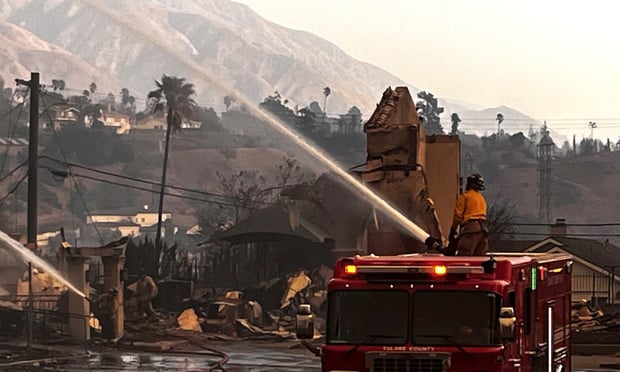It's obvious to anybody who walks along Wall Street on a Sunday morning that there is some kind of war going on. With the New York Stock Exchange closed, it should be a nice peaceful stroll. That was before 9/11.
A Sunday morning walk now takes you past ranks of road-traps, metal barriers, bollards, and armed guards, ready at all times to counter a terrorist attack on NYSE, one of the most iconic targets in the western world.
When President Obama took the oath of office, the Bush era of pre-emptive war ended. Yet considerable continuity on security and foreign policy issues remains. Idealism has given way to realism. Contrary to Obama's pre-election pledge, Guantanamo Bay has stayed open “'to house some very dangerous people,” and through his aggressive unilateral drone policy, more than twice as many suspected terrorists have been killed as were ever locked up there.
Obama has essentially persevered with the basic foreign policy of his predecessor, but by more limited means in an age of austerity. His rhetoric has been different–and his war on terror more focused–but his determination to disrupt Al Qaeda has been as resolute.
The counterterrorism track record under the Obama administration has been as impressive as when Michael Chertoff was secretary of Homeland Security. Since 2009, there have been numerous audacious plots against the homeland, but only two were not interdicted by the security services: the Christmas Day aviation bomb plot and the Times Square vehicle bomb plot. In both plots, the terrorist social networks were minimized to avoid detection: the larger the network, the greater the chance of discovery.
Following the same security principle, Osama bin Laden's contact with the outside world was minimized to a single courier. But ultimately, the courier's indiscretion led the CIA to Abottabad.
As much as anyone else, President Obama could claim the credit for bringing Osama bin Laden to justice. Against the advice of both his vice president and secretary of Defense, he authorized the raid on Abottabad, even though there was only an even chance that bin Laden was even there. As the crowning achievement in his war on terror, this bold demonstration of hard power finds more favor with the electorate than the projection of soft power through open-handed diplomacy. Indeed, the Navy SEALs who hastened the demise of the aging Al Qaeda leader reckoned their heroics would secure another White House term for their commander-in-chief.
The security transition from Bush to Obama was smoother than had been anticipated or even imagined. The surge in Afghanistan is an example of a hawkish foreign policy with considerable cross-party support. Back home, counterterrorism security has been maintained at a high level, with prime targets, such as NYSE and the State Department, having fortress security standards. Lowering security was not a strategy to attract undecided voters.
Obama and his challenger Mitt Romney promised vigilance at home and abroad over the next four years. For terrorism-risk underwriters, the choice between Obama and Romney was less about which candidate's policies would most suppress terrorism claims and keep the homeland safe, and more about which candidate's policies would bring back boom years on Wall Street.
Want to continue reading?
Become a Free PropertyCasualty360 Digital Reader
Your access to unlimited PropertyCasualty360 content isn’t changing.
Once you are an ALM digital member, you’ll receive:
- Breaking insurance news and analysis, on-site and via our newsletters and custom alerts
- Weekly Insurance Speak podcast featuring exclusive interviews with industry leaders
- Educational webcasts, white papers, and ebooks from industry thought leaders
- Critical converage of the employee benefits and financial advisory markets on our other ALM sites, BenefitsPRO and ThinkAdvisor
Already have an account? Sign In Now
© 2025 ALM Global, LLC, All Rights Reserved. Request academic re-use from www.copyright.com. All other uses, submit a request to [email protected]. For more information visit Asset & Logo Licensing.








